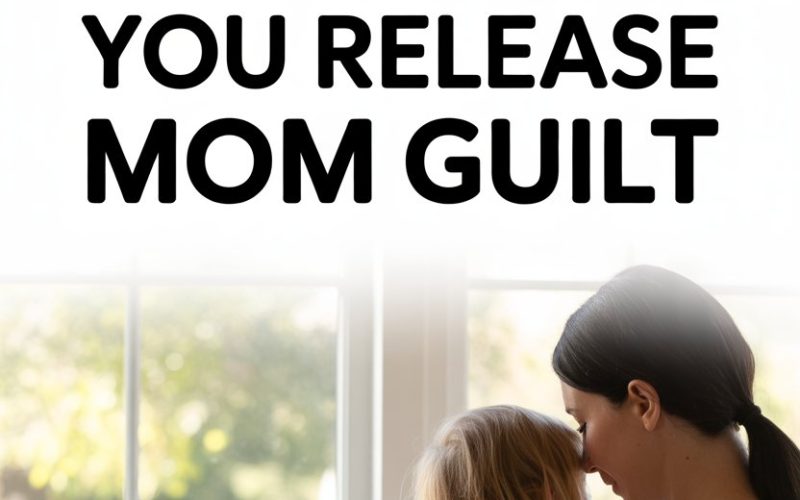If you’re reading this, you’ve probably experienced a little something called mom guilt.
You know, that prickly cocktail of self-doubt, second-guessing, and the wild suspicion that every other parent has managed to both bake organic muffins and attend every single school event.
Spoiler: They haven’t.
Mom guilt is universal, stubborn, and oddly creative. But it doesn’t have to run the show.
Ready for a reality check (with a side of empathy and actual solutions)?
Here are five truths every busy parent deserves to hear—plus what to do with them.
1. Perfect Parenting Doesn’t Exist (No, Not Even for Her on Instagram)
It’s the classic comparison trap. You scroll through your feed, see the artfully staged bento lunches, the matching outfits, and the children who appear to be permanently mid-laugh.
Suddenly, your own morning (involving soggy cereal and one child wearing pyjama bottoms under their school uniform) feels… lacking.
But here’s the real kicker: Not a single parent, not even the ones who seem to be channelling Mary Poppins’ energy and Martha Stewart’s craft skills, has it all together.
Research from the University of Waterloo found that social media can dramatically distort parental expectations, making all of us feel like we’re falling short.
Those curated snapshots are precisely that—snapshots. No one’s filming the tantrum about the blue cup or the mad dash to find missing shoes.
When guilt creeps in, remind yourself: Standard-issue parenting is a glorious mess, and there’s no award for “Most Pinterest-Worthy Packed Lunch.”
Your child will not recall the carrot stars, but they’ll remember your hugs, your bad jokes, and how you showed up when it counted.
Action step for tonight: Unfollow, mute, or take a break from accounts that ramp up your guilt. Instead, connect with parents who keep it real—online or in person.
2. Self-Care Fuels Good Parenting (And It Doesn’t Have to Involve Bubble Baths)
Somewhere along the way, “self-care” became synonymous with yoga retreats and spa days, which are lovely, sure, but not exactly on the cards for most of us between laundry cycles and parent-teacher meetings.
Truth is, self-care is less about candles and more about keeping your cup full enough to pour into someone else’s.
According to the American Psychological Association, parents who consistently meet at least a few of their own needs—sleep, nutrition, connection, or, yes, a cheeky chocolate bar in the pantry—are far more likely to be patient, emotionally available, and resilient.
You can’t pour from an empty cup, even if you’re running on caffeine and sheer force of will. Children benefit from having parents who practice self-compassion and model boundaries.
Action step for tonight: Choose one tiny thing that’s just for you. A hot cuppa after bedtime, five minutes of your favourite podcast, or stepping outside and breathing in the night air. The laundry will wait (promise).
3. Kids Need ‘Good Enough’ Parents—Not Superheroes
Perfection is not only unattainable, it’s unnecessary. The concept of the “good enough” parent was coined by psychoanalyst Donald Winnicott, who found that children thrive when their parents are responsive, loving, and—crucially—not perfect.
When mistakes happen (and they will), children learn that it’s okay to be flawed, to apologise, and to bounce back. These so-called parental “failures” are actually prime lessons in resilience and empathy.
A study in the Journal of Family Psychology shows that children of parents who model imperfection and recovery develop stronger emotional coping skills.
Next time you lose your temper, forget a permission slip, or serve toast for dinner, remember: You’re not letting your child down. You’re giving them a front-row seat to real life.
Those moments of “good enough” are the ones that stick.
Action step for tonight: When you catch yourself mentally replaying the day’s slip-ups, pause. Think of one thing you did well—even if it was just keeping everyone alive and mostly clothed. That counts.
4. Guilt Isn’t a To-Do List—It’s a Signal (Not a Command)
If guilt were useful, it would come with an instruction manual and a handy checklist. Instead, it just sits there, nagging at you about everything you “should” be doing.
Here’s the trick: Guilt is an emotional signal, not a directive.
Psychologists like Dr. Brené Brown explain that guilt can be a teacher, nudging us to reflect, but it becomes toxic when it paralyzes us or leads to unrealistic expectations.
Sorting out helpful guilt (“I snapped at my child; I want to apologise”) from the useless kind (“I didn’t attend the bake sale and now everyone hates me”) is key.
You’re allowed to acknowledge guilt—then decide what, if anything, needs action. Sometimes, it’s just a sign you care deeply, not a sign you’re failing.
Action step for tonight: Choose one nagging guilt thought and ask: Is this something I truly want to change, or is it just my inner critic being noisy?
If it matters, make a plan. If it’s out of your hands, let it float by like last week’s missing sock.
5. Your Kids Don’t Need Perfection—They Need Presence
The pressure to “do it all” is relentless. But what your children really crave isn’t a schedule packed with enrichment or a fridge full of organic snacks—they want you.
Your attention. Your laughter. Your willingness to stop and look them in the eye.
Research backs this up: Harvard psychologists found that meaningful parent-child connection (think: chatting at bedtime, giggling over silly faces, even grumbling together while cleaning up) does far more for a child’s well-being than any particular achievement or checklist.
Presence can look different on different days. Maybe you have five minutes to read a story before bed or only enough energy to listen while they recount their dream (again). That’s enough.
These moments add up, and they’re what your child will carry forward.
Action step for tonight: Put aside your phone, even for five minutes, and let your child lead the conversation. Ask, “What was the best part of your day?” Then listen, really listen—even if the answer is “I found a cool rock.”
You’re Doing Better Than You Think
Mom guilt is tenacious, but it’s not the whole story. Real parenting is messy, unpredictable, and often hilarious in hindsight.
Your children don’t need a superhuman—they need you, in all your imperfect, loving glory.
Tonight, leave the guilt at the door.
Give yourself a little grace and remember: Good enough is more than enough, and you’re right where you belong.




